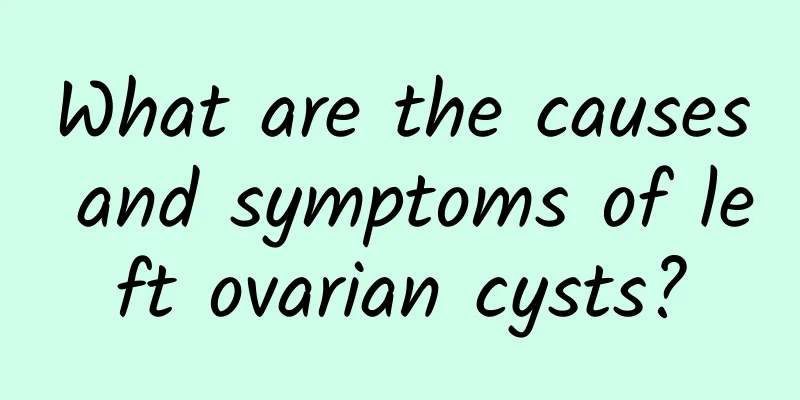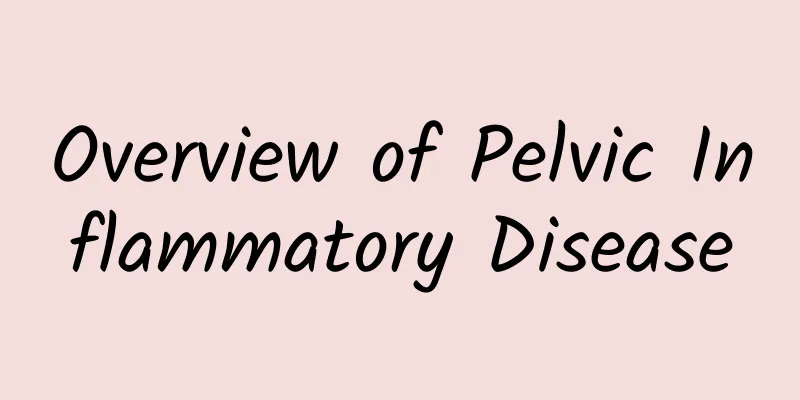TCM Syndrome Differentiation of Pelvic Inflammatory Disease

|
Pelvic inflammatory disease is a common gynecological disease in daily life. It often harms women's physical and mental health with symptoms such as irregular menstruation, abdominal pain, and bloating. Experts say that Chinese medicine believes that pelvic inflammatory disease is mostly caused by women's weak constitution and stagnation of qi and blood. Next, let's learn about the Chinese medicine classification of pelvic inflammatory disease. From the perspective of traditional Chinese medicine, pelvic inflammatory disease can be divided into five types: heat toxicity type, damp-heat type, damp-heat stasis type, blood stasis type, and Chong-Ren deficiency-cold type. Each type of pelvic inflammatory disease has different symptoms. Heat toxicity type: Women often have symptoms such as high fever, chills, headache, lower abdominal pain, etc.; the tongue coating is yellow and the tongue is red; the pulse is slippery or stringy; the amount of leucorrhea is like pus and has a foul odor; the urine is yellow and there is constipation. Damp-heat type: Women often have low fever, lower abdominal pain and burning sensation; red tongue, yellow and greasy coating, slippery and rapid pulse; dry mouth and no desire to drink; vaginal discharge of large amount, yellow and thick texture, or a mixture of red and yellow. Damp-heat stasis type: Women often have symptoms of lower abdominal distension and pain, bitter and dry mouth; dark red tongue, yellow or white fur, stringy or rapid pulse; thick yellow vaginal discharge, turbid urine, dry and hard stool Blood stasis type: Women have persistent pain in the lower abdomen that refuses to be pressed, or have irregular menstruation, or have heavy flow with clots; the tongue is dark purple, or has ecchymosis, the tongue coating is thin, and the pulse is deep, stringy or astringent. Chong and Ren deficiency-cold type: Women have cold pain in the lower abdomen, like warmth and pressure, are afraid of cold and have cold limbs; the tongue is pale, the tongue coating is thin white, and the pulse is deep and fine; the vaginal discharge is large in amount and white in color with thin content. Through the above explanation of pelvic inflammatory disease, we can know that there are five types of pelvic inflammatory disease in traditional Chinese medicine, namely, heat toxicity type, damp-heat type, damp-heat stasis type, blood stasis type and Chong-Ren deficiency-cold type. Experts remind that female friends who suffer from pelvic inflammatory disease should pay special attention to their daily diet, and must not eat spicy and irritating foods, and must not drink cold water. |
<<: The most common pathological types and diagnosis of pelvic inflammatory disease
>>: Tuberculous pelvic inflammatory disease infection
Recommend
What diet do patients with thick endometrium need?
Thickening of the endometrium may lead to irregul...
Scientific Diagnosis Methods of Bacterial Vaginosis
Bacterial vaginosis (BV) is a sexually transmitte...
What are the conditions for uterine fibroid removal and what are the methods for uterine fibroid removal?
Uterine fibroids are a common gynecological tumor...
Six taboos to help you eliminate vaginitis
Women with vaginitis usually feel itching and bur...
What are the right snacks to eat during the Spring Festival? Don’t be greedy for “New Year’s cookies”, nutritionists: 4 tips for eating healthily
As the world celebrates the Spring Festival, all ...
Why can’t I lose weight? Experts share 6 weight loss diet tips to keep slim and avoid gaining weight again
The secret of staying slim and not gaining weight...
Experts introduce the examination methods before abortion surgery
In order to reduce the harm caused by abortion su...
How to drain pelvic fluid
Pelvic effusion is a common gynecological problem...
Will untreated cervical precancerous lesions shorten life expectancy?
In recent years, more and more women have suffere...
Reduce edema! 2 French slow exercise promotes lower body metabolism
Be careful, sedentary ladies! Maintaining the sam...
Pelvic effusion and abnormal vaginal discharge
Pelvic effusion accompanied by abnormal vaginal d...
What to eat for women with cervical erosion and bleeding? 12 dietary therapies for patients with cervical erosion and bleeding
In life, women with cervical erosion should be tr...
What is the reason for a large piece of meat to flow out during a miscarriage? What should I pay attention to after a miscarriage?
Spontaneous abortion refers to abortion caused by...
What are the symptoms of adnexitis in the elderly?
Symptoms of adnexitis in the elderly include lowe...
What should I do if my menstrual period is irregular and my vaginal discharge is abnormally dark brown?
What should I do if my menstrual period is irregu...









